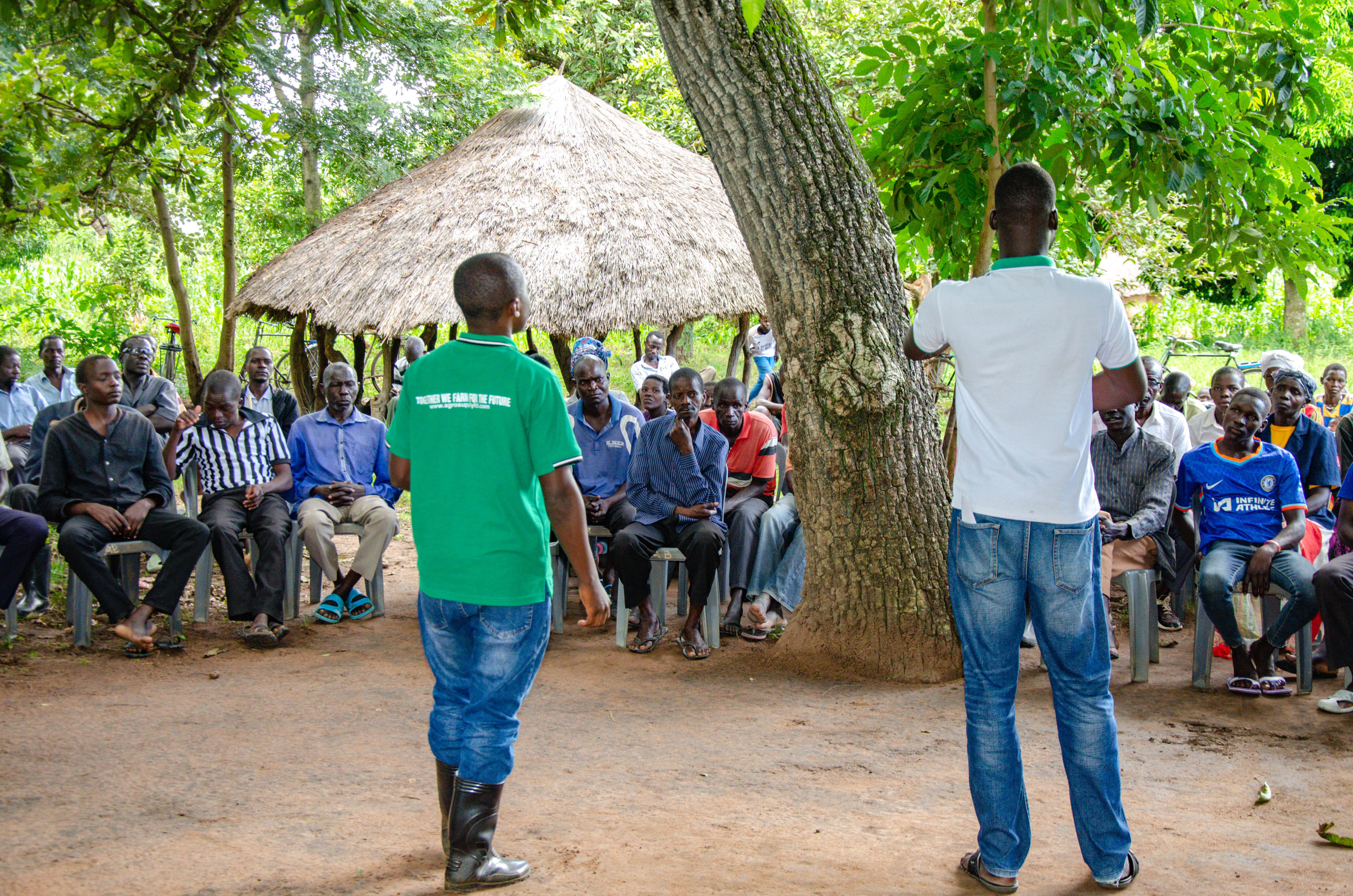
To address the pressing issue of food security in Uganda’s most vulnerable districts, we embarked on a transformative journey with the support of the Swiss Capacity Building Facility (SCBF). From October 2023 to November 2026, this impactful initiative focuses on financial inclusion and empowering smallholder farmers, providing innovative solutions to the challenges facing agriculture in Uganda.

The initiative has already made remarkable strides in transforming Uganda’s agricultural landscape. Key achievements include:
Engaging over 11,250 farmers: Farmers now have access to drought-tolerant, high-yielding seed varieties that are better suited to the challenges of climate change.

Empowering women in agriculture: Onboarding 71 female agents has driven community-based agricultural support and empowered women to take leading roles in farming initiatives.
Introducing the "Save-to-Buy" system: The *284*43# platform enables farmers to access quality inputs without the financial strain of loans, fostering a more sustainable approach to purchasing inputs.
Boosting productivity: Training farmers in best practices for maize cultivation has increased yields from 20 to 30 bags (90kg each) per acre, significantly enhancing food production.
Expanding market opportunities: Farmers now have increased access to food distribution channels, improving both their incomes and regional food availability.
Despite notable achievements, the project encountered several hurdles. However, resilience and adaptability ensured these challenges were effectively addressed:

This initiative has provided valuable insights that will shape future efforts. Key takeaways include:
To build on these lessons, we are planning the following actions:

This initiative has been transformative for smallholder farmers in Uganda, equipping them with the tools and knowledge needed to increase productivity and enhance food security. By addressing systemic challenges and fostering innovative solutions, we continue to empower communities and pave the way for sustainable agricultural growth.
As we look to the future, our commitment to supporting smallholder farmers and promoting food security in Uganda remains steadfast. Together, we can create a more resilient and sustainable agricultural sector that benefits everyone.
TOGETHER WE FARM FOR THE FUTURE!